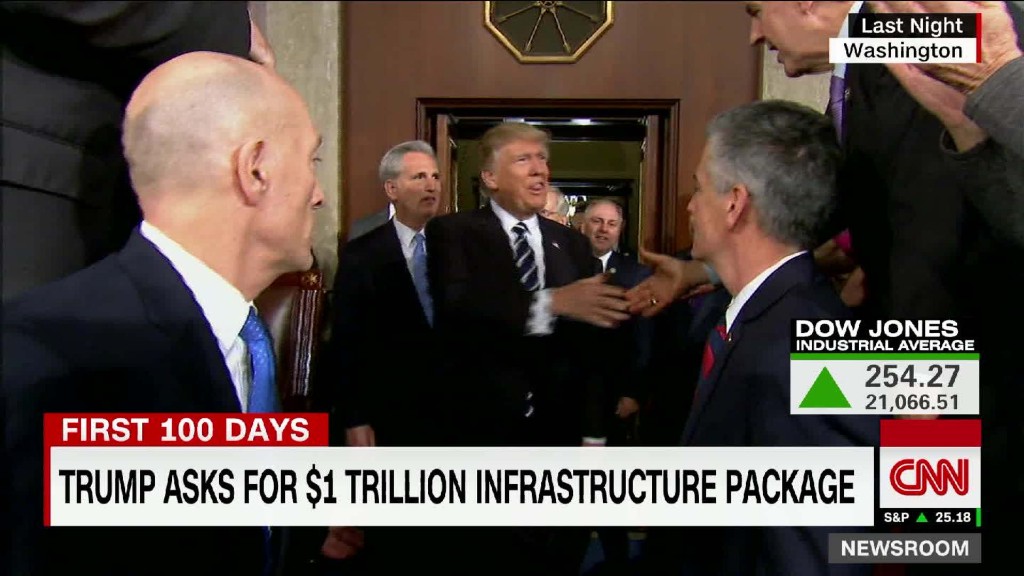
The Trump bump is over.
The U.S. dollar slumped to a seven-month low against a basket of currencies on Tuesday, wiping away the last of its post-election gains.
The currency gained more than 5% to hit its highest level in 13 years following President Trump's electoral victory. But momentum has reversed because of weak economic data and doubts over Trump's ability to finalize his economic agenda and move it through Congress.
"The generally disorganized nature of the Trump administration has made investors less confident of a big fiscal stimulus being passed any time soon," said Andrew Hunter of Capital Economics.
Trump campaigned on promises to slash taxes, cut regulation and increase infrastructure spending. The plans gave a big boost to the U.S. dollar after the election because many investors thought they could lift the American economy.
But little progress has been made. Hunter pointed to Trump's highly-anticipated tax plan as an example of why investors are less optimistic.
The administration released a one-page tax reform outline in April, but the document left many questions unanswered and was met skepticism among lawmakers.
"It's not tax reform," one senior Republican aide told CNN at the time. "Not even close."
The White House had originally hoped that tax reform could be accomplished before Congress' August recess. But even the administration itself has admitted that timeframe is not realistic.
Related: Trump says his tax bill is 'moving along.' Except it doesn't exist
Kit Juckes, a strategist at Societe Generale, said that investors are now expecting a smaller stimulus boost. And they expect it to come later.
Juckes said that other factors have weighed on the dollar. Investors expect fewer rate cuts this year from the U.S. Federal Reserve, and there's no sign of rising prices. Jobs numbers released Friday were disappointing.
Investors will also be paying attention to the testimony of James Comey on Thursday. The former FBI director is expected to speak publicly about the investigation into possible coordination between the Trump campaign and Russian officials.
The dollar has also weakened because of factors beyond the U.S. The euro, for example, has strengthened in recent weeks because of stronger economic data in Europe.
Related: Trump breaks key rule for presidents: Don't talk down the dollar
Trump may not be worried about the weaker dollar. While most of his predecessors generally favored a strong dollar, Trump said in April that the currency was "getting too strong".
A drop in the value of the dollar would provide a boost to American exporters by making their goods appear cheaper to buyers in foreign markets. That could, in turn, help alleviate the trade deficit that Trump has repeatedly expressed concern over.
However, a strong dollar is seen as a sign of resilient economy. It also makes imported goods cheaper for American consumers.
-- Jethro Mullen and Matt Egan contributed reporting.






